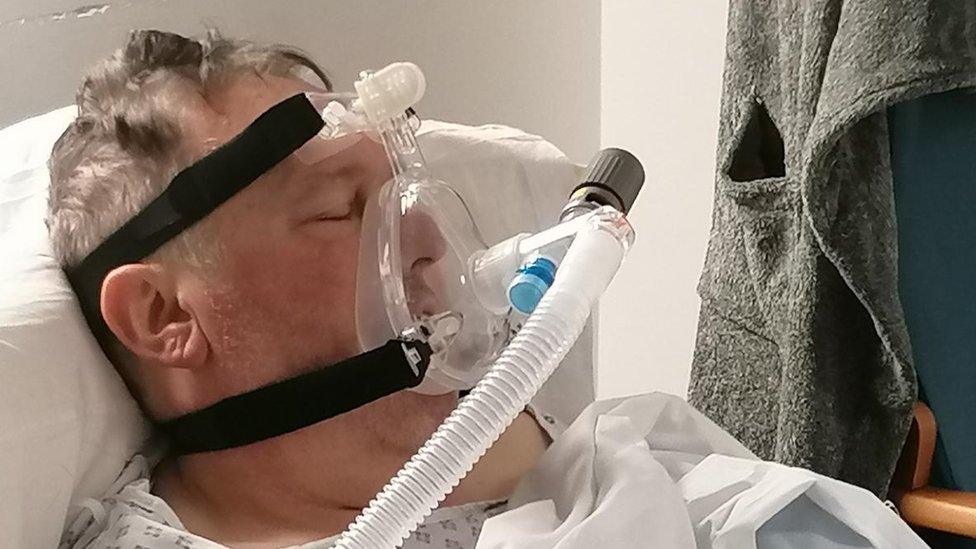Covid: Kettering's high rate 'not all about children'
- Published
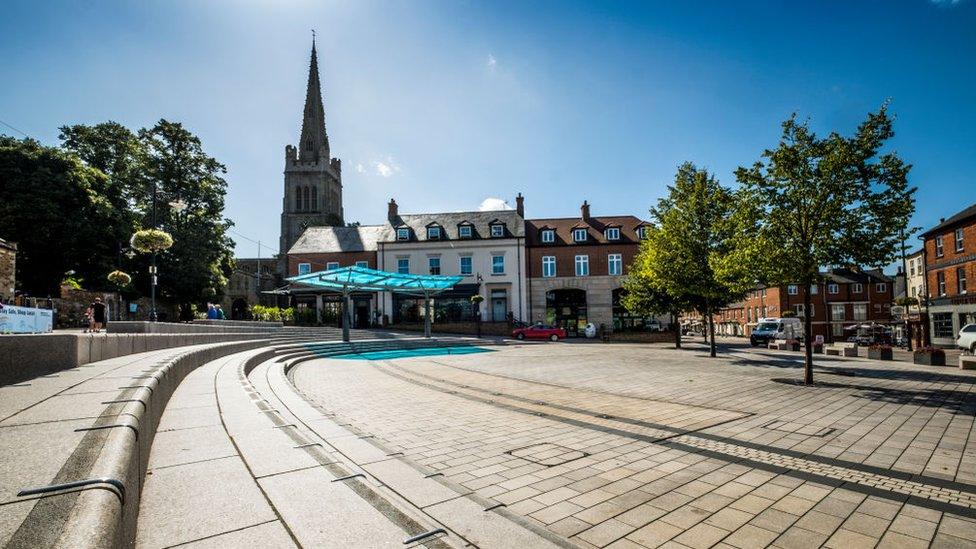
Kettering has the highest rate of new Covid-19 cases in the country
Cases of Covid-19 have almost doubled in Kettering, making it the area with the highest number of new positive tests per 100,000 people in the country. Why are numbers in the Northamptonshire town so high?
In the week up to 23 September, Kettering had 960 cases per 100,000 people, an increase of 97% from the previous week.
The average for England as a whole over the same period was 323 per 100,000 people.
The town is not the only area in Northamptonshire seeing high case rates.
Neighbouring towns Corby, with 679 Covid cases per 100,000 people, and Daventry, with 521 cases per 100,000, are also among the highest in the country.
The return of children to the schools and low vaccination rates have been put forward as possible explanations.

'Covid is not over yet'
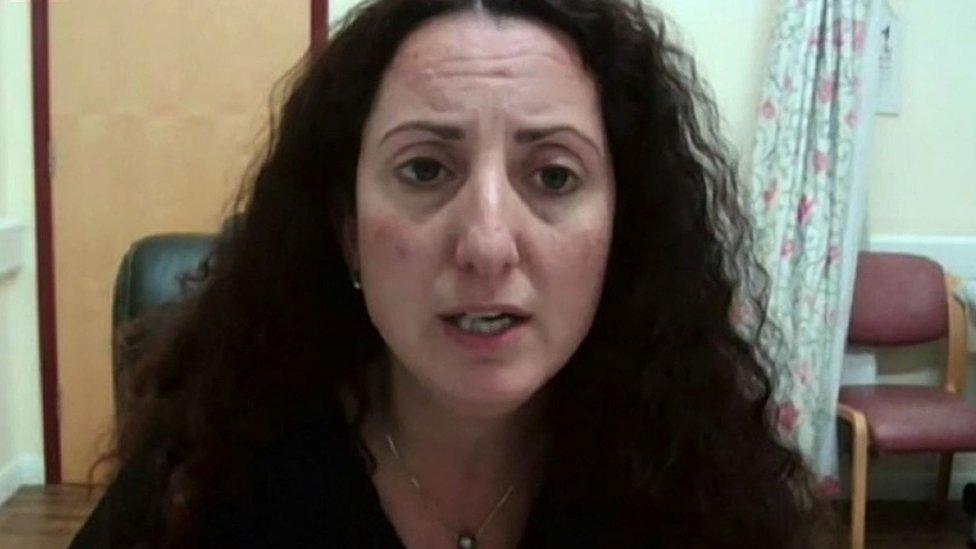
People should remain cautious and wear masks in crowded indoor areas, according to Dr Joanne Watt
The chairwoman of Northamptonshire Clinical Commissioning Group, Dr Joanne Watt, admits the number of Covid cases in Kettering and Corby "really worries us".
She says low vaccination rates in parts of the towns, coupled with the return of children to schools, plays a part.
"The thing that really worries us, particularly with Kettering and Corby, is those rates are higher than we would expect and some of the vaccination rates are much lower," she says.
Dr Watt says a rise had been expected due to the increased number of lateral flow tests being taken by children returning to school, but added some people remained "reluctant" to get vaccinated, particularly those under 45.
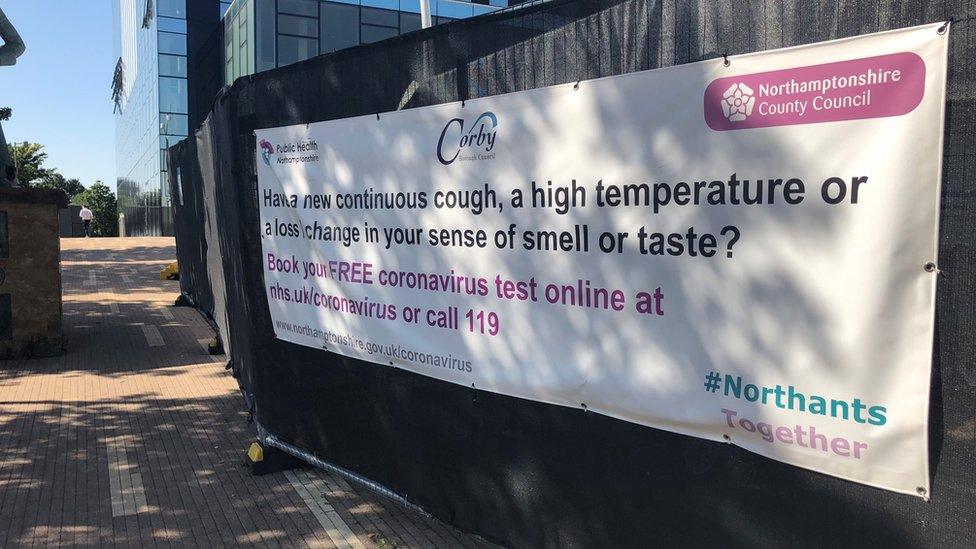
Corby has had consistently high numbers of Covid cases throughout the pandemic
"Many people just haven't got round to it," Dr Watt says. "They've got very busy lives, but it is really, really important."
She urges people to wear masks in crowded indoor areas, even though it is no longer mandatory to do so.
"People are relaxing a little bit," she adds. "Covid is not over yet."

Cases on the rise
In Kettering, 74,303 people, equating to 83% of its population of over 16s, have had their first Covid jab, with 69,216 people (77% of its population) having had the second.
In Corby, 47,255 people (73%) have had the first jab, and 43,076 (66%) the second.
Nationally, 89.7% of eligible people have had their first dose, and 82.4% their second.
Despite the increase in case numbers, there was only one new death in Corby in the week up to 27 September, and three in Kettering.
According to the latest figures for hospital admissions, in the week up to 19 September, Kettering Hospital saw four new admissions. As of 21 September it had 36 beds occupied by coronavirus patients.

'Kettering cases just skyrocketed'
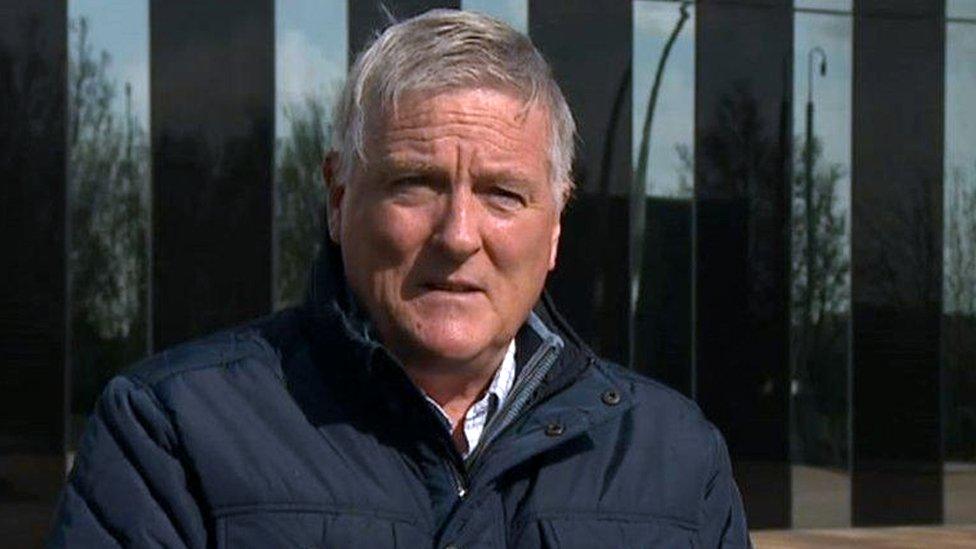
Dr Stephen O'Brien, from the University of Northampton, says the increase in Covid cases in Kettering and Corby is not all about children
An increase in the number of coronavirus cases in schools was predictable, but is "too simple" an answer to the question of why case rates in Kettering and Corby are so high, says the University of Northampton's Dr Stephen O'Brien.
Dr O'Brien, a visiting professor of nursing at the university, says the number of cases in schools is "very worrying".
"We've talked about Corby a lot, but Kettering was always bubbling along and it's really just skyrocketed," he says.
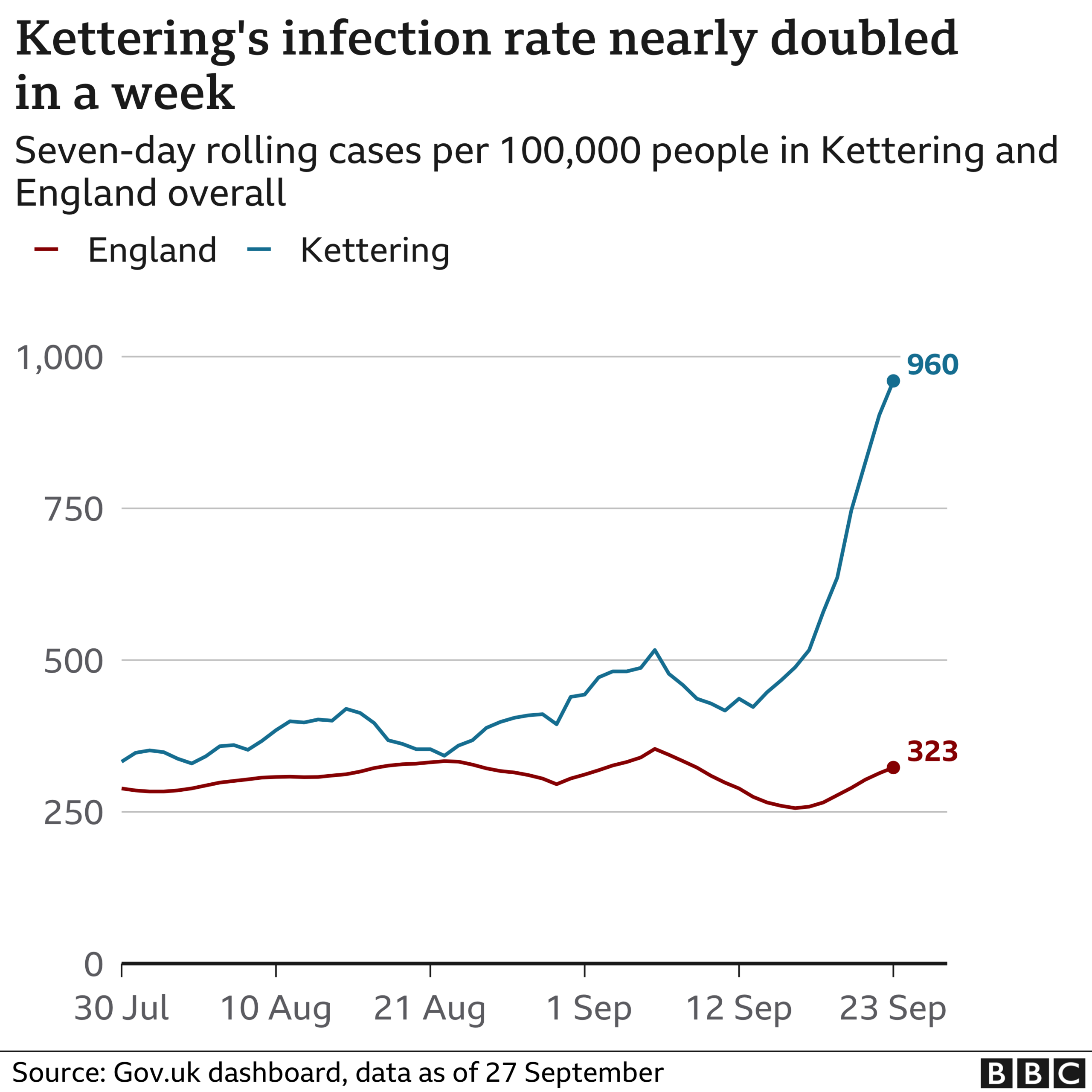
"The big question is whether schools are reflecting a rise in community transmission or are driving the rise.
"It's not something we weren't expecting. We know schools are risky in the sense of transmission for Covid.
"If you test more people, you will see more positives. This is the argument that schools are reflecting community transmission.
"It would be very simple to say this is all about children. It's not at all.
"There are cases rising across all age groups, it's just much higher in school children."

'Mask wearing starting to slip'
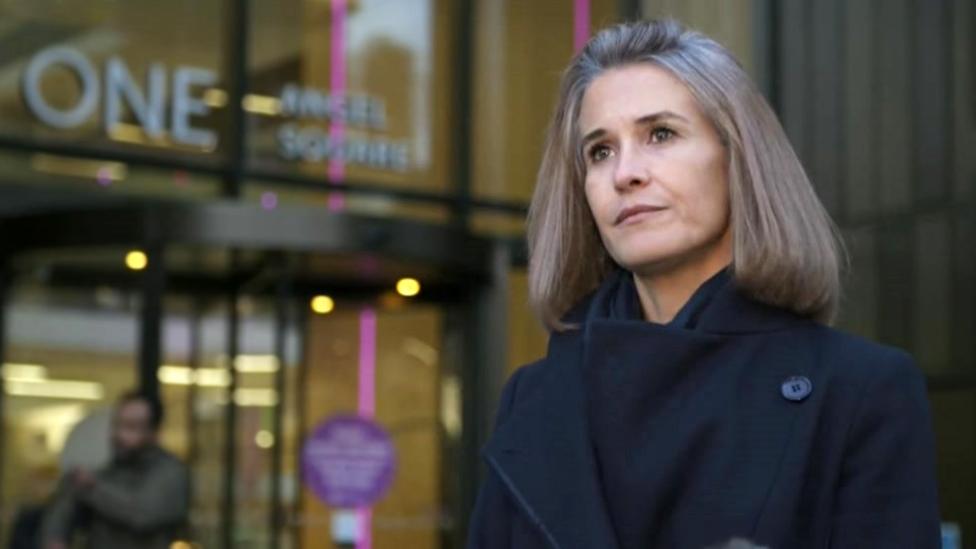
Northamptonshire director of public health Lucy Wightman believes vaccinating 12 to 15-year-olds should help lower case rates
Secondary school-aged children in Kettering have been urged to stay at home if their parents suspect they have Covid.
Northamptonshire's director of public health, Lucy Wightman, says schools there and in Corby are not to blame for the increased cases.
"It's not that schools aren't doing the absolute best they can," she says. "This is community transmission."
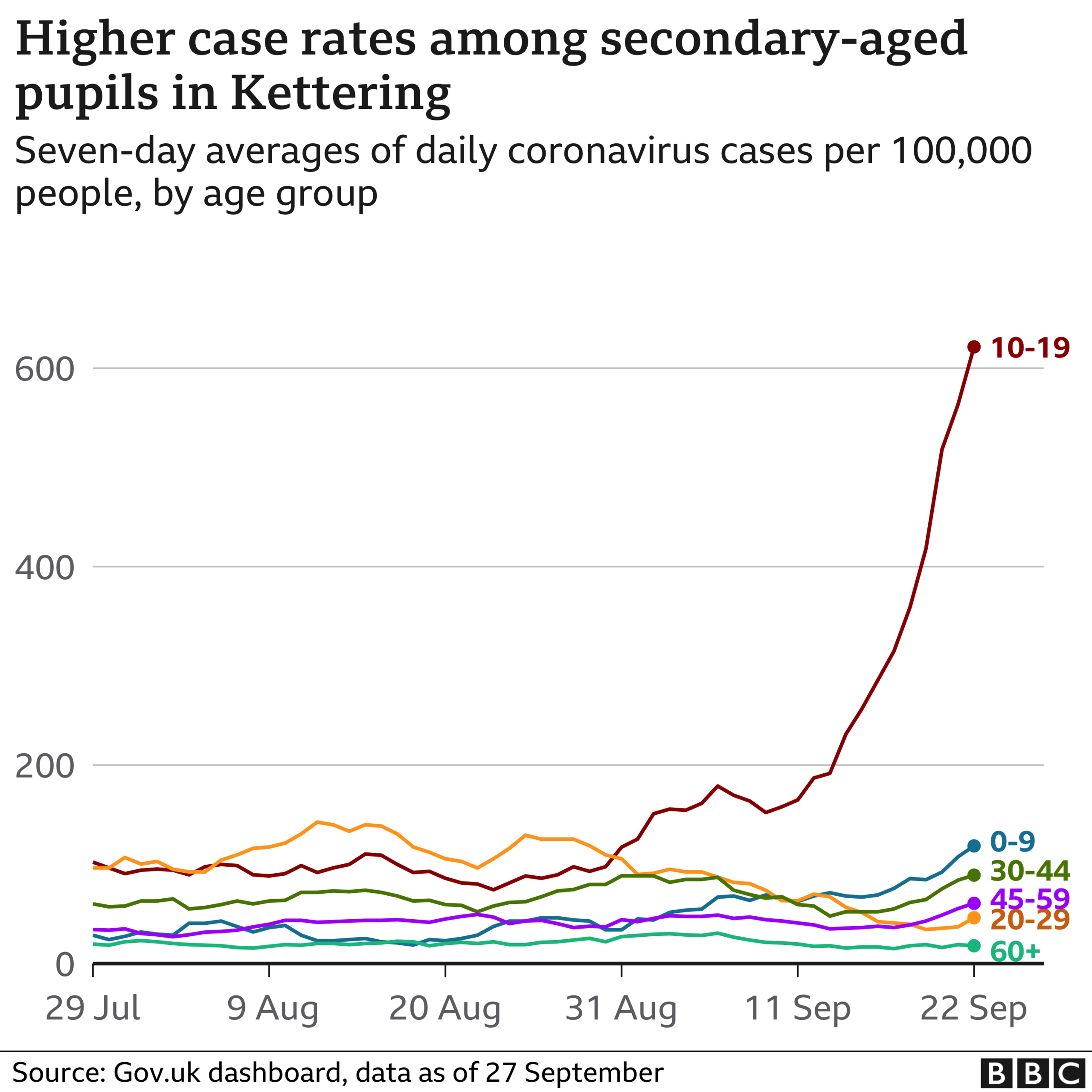
Ms Wightman says the challenge is to make sure the virus is not now passed on to "larger groups of school children".
She says it is important for people to continue to follow guidance around social distancing, wearing face masks in crowded areas and hand washing, alongside regular testing and vaccinations.
"You can't go out and not see people in supermarkets and socialising without noticing mask wearing is starting to slip," she says.

Find BBC News: East of England on Facebook, external, Instagram, external and Twitter, external. If you have a story suggestion email eastofenglandnews@bbc.co.uk, external
Related topics
- Published27 September 2021
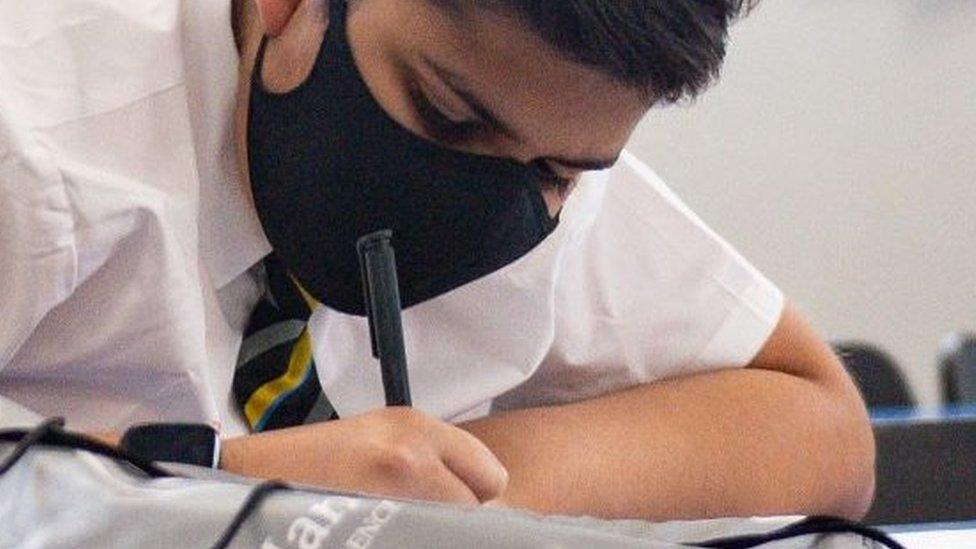
- Published24 September 2021
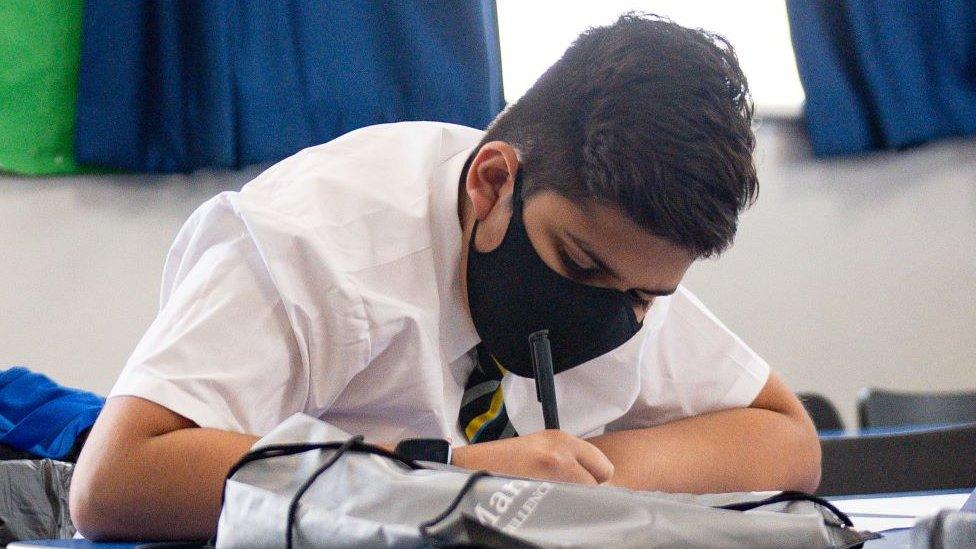
- Published17 March 2021
